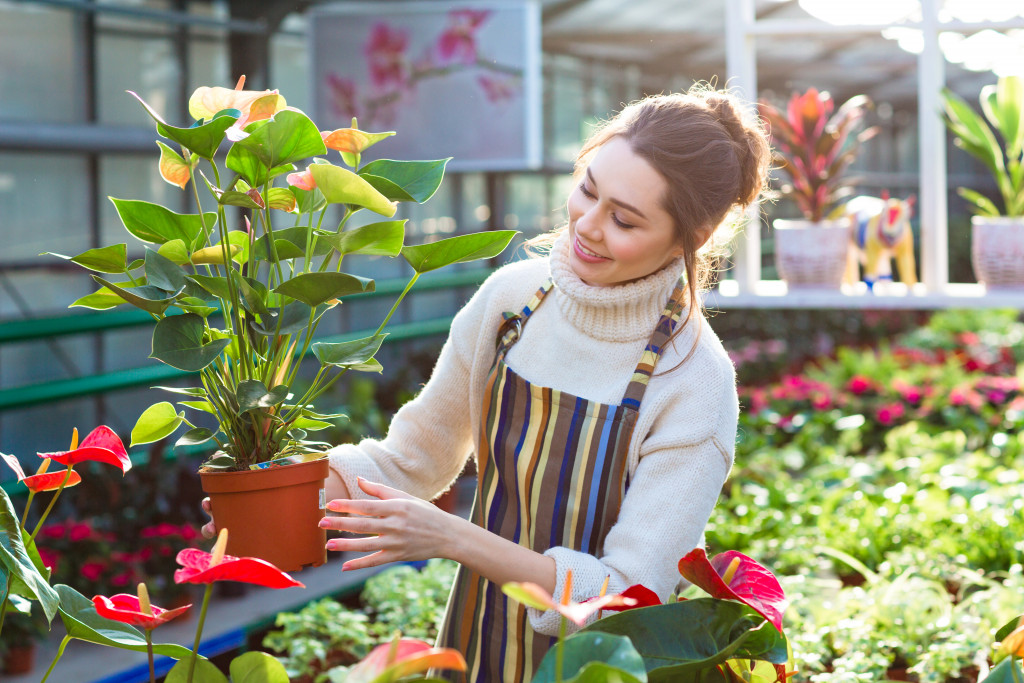For many people, gardening can be a refuge from the hustle and bustle of everyday life. It’s a hobby that helps them relax and clear their minds. But if you’re not careful, your garden can become overgrown and full of weeds, making your garden look more like a jungle than an oasis.
So, how can you avoid this issue? Here are some tips to help you get started:
Get Rid of Dead Leaves and Debris
Clearing away dead leaves and debris from your garden is vital for two reasons. First, it can help to prevent diseases from spreading. Dead leaves and debris can harbor fungi and bacteria that can infect other plants. Second, clearing away debris can help improve the look of your garden and make it more inviting. Dead leaves can make a garden look brown and sad, while fresh leaves and flowers can add color and life. Of course, clearing away debris can be a lot of work, but keeping your garden healthy and beautiful is worth it.
Add Compost or Manure
Fertilizer is vital for helping plants grow, but they can be expensive. A great way to save money is to add compost or manure to your garden instead. This will help improve your soil’s quality and provide nutrients for your plants. Compost is made from organic materials that have been decomposed, and it can be added to your soil in a variety of ways. You can purchase bags of compost from a garden center, or you can make your own by composting kitchen and yard waste. Manure is another excellent option for adding nutrients to your soil. It is made from animal waste and can be a great source of nitrogen, phosphorus, and other essential nutrients. Use manure sparingly, however, as too much can burn your plants.
Mulch Your Plants
Mulching helps conserve moisture and keep weeds at bay. Master gardeners say that one of the best tips for success in gardening is to mulch your plants. Mulching helps suppress weeds, keeps your plants’ root systems from overheating, and helps your soil retain moisture. You can buy small bark mulch in a bag at any garden center. Be sure to apply a two- to three-inch layer of mulch around your plants, keeping it several inches away from stems and trunks.
Water Early in the Day

Water evaporates quickly, especially in hot weather, so it’s essential to water your garden early in the day. This allows the plants to uptake the water before it evaporates. It’s also a good idea to water slowly so that the water can penetrate deep into the soil. Watering early in the day also helps to prevent fungal diseases, which are more common in humid conditions. So if you want to keep your garden healthy and disease-free, make sure to water early in the day.
Protect Your Plants from Pests
Anyone who’s ever dealt with pests knows they can be a huge pain. Not only are they destructive, but they can also be challenging to get rid of. The good news is that you can do a few simple things to protect your plants from pests. First, remove any dead or dying leaves from your plants. This will help to prevent pests from using them as breeding grounds. Second, keep your garden clean and free of debris. This will deny pests the hiding places they need to thrive. Finally, consider using pest-resistant plants. These varieties are naturally less attractive to pests and can help to keep your garden looking its best. By following these simple tips, you can help to keep your garden free of problems.
Inspect Your Plants Regularly
Get in the habit of inspecting your plants regularly for signs of disease or pests. By keeping a close eye on your plants, you can spot problems early and take steps to correct them. Inspecting your plants also allows you to monitor their growth and health. When studying your plants, there are several things to look for. First, check the leaves for signs of damage or disease. Then, look at the stems and branches to see if they are strong and healthy. Finally, make sure that the roots are well-anchored in the soil. By taking the time to inspect your plants regularly, you can ensure that they stay healthy and vigorous.
The bottom line
Gardening is a gratifying hobby, but it does require some work to keep your garden healthy and beautiful. However, doing so does not have to be difficult or time-consuming. These seven gardening hacks will help you get the job done quickly and easily, so you can enjoy your garden all season long!





